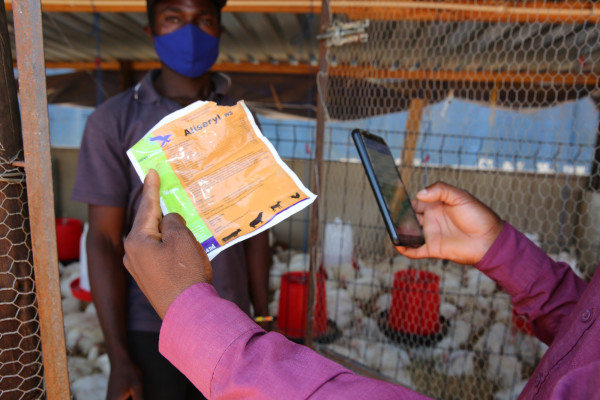
Zimbabwe is making significant progress in combating antimicrobial resistance (AMR) within its poultry sector, thanks to a collaborative effort between the Food and Agriculture Organization of the United Nations (FAO) and the Government of Zimbabwe. Through a Multi-Partner Trust Fund (MPTF) supported project and the Fleming Fund global project, the initiative has successfully reduced the overuse of antimicrobials in the broiler value chain by empowering farmers with sustainable and biosecure poultry production practices.
Antimicrobial resistance poses a serious threat to global health, food security, and economic stability. The overuse of antimicrobials in livestock production contributes significantly to this problem, leading to the development of resistant bacteria that can spread to humans, making infections harder to treat.
The project, implemented in eight districts – Bubi, Chegutu, Masvingo, Marondera, Murewa, Mutare, Mutasa, and Zvimba – employed the Farmer Field School (FFS) approach to promote improved husbandry practices. This hands-on, participatory method equips farmers with the knowledge and skills to enhance biosecurity, prevent diseases, and ultimately reduce their reliance on antimicrobials.
Speaking at a recent project review meeting, Berhanu Bedane, FAO Livestock Development Officer, emphasized the project’s impact. “This initiative has demonstrated the value and impact of the One Health approach, where sectors across human and animal health collaborated to address the shared threat of antimicrobial resistance,” he stated. He highlighted that FAO’s focus was on delivering practical, evidence-based interventions directly to the animal health sector.
The FFS model proved instrumental in achieving these goals. By providing farmers with tailored training and communication materials, the project fostered a deeper understanding of disease prevention and the importance of responsible use of antimicrobials. A baseline Knowledge, Attitudes, and Practices (KAP) survey informed the development of these materials, ensuring they were relevant and effective.
“The farmer field schools have been empowering poultry farmers through hands-on training in sustainable and biosecure poultry production,” Bedane explained. “This enhances poultry productivity while simultaneously reducing the use of antimicrobials through the reduction of infections, making our health more secure and sustainable.” He also noted similar initiatives in the dairy value chain aimed at understanding and reducing antimicrobial use through prudent biosecurity and animal health management systems.
The Chief Director of the Department of Veterinary Services (DVS), Dr Pious Makaya echoed these sentiments, emphasizing the project’s alignment with Zimbabwe’s national development priorities, as outlined in the National Development Strategy 1 (NDS1) and the broader Vision 2030. “What we have heard today is in sync with the national development imperatives that we have,” he said.
He specifically highlighted the project’s contribution to key national priorities such as health and well-being, food security, and food safety. “Our health would be enhanced and improved, and also the health of the animals as well, the health of the environment as well would also be improved,” he stated, adding that enhanced animal health improves livestock production and promotes food safety.
The DVS Chief Director recognized the complexity of tackling AMR, describing it as a “wicked problem” requiring multifaceted solutions. “We cannot have one single solution. It is not a linear problem,” he emphasized, underscoring the importance of the multi-sectoral approach adopted by the MPTF and Fleming fund projects. He also stressed the need for continuous review and adaptation of strategies to keep pace with the evolving nature of AMR.
Looking ahead, both FAO and the Government of Zimbabwe reaffirmed their commitment to maintaining momentum in the fight against AMR. Berhanu Bedane stated that FAO and its partners in the Quadripartite are fully committed to maintaining momentum. He also pointed towards consolidating the achievements realized and identifying clear pathways for continued collaboration in the implementation of Zimbabwe’s AMR National Action Plan 2.0. The country is also being considered for a phase two of the MPTF project.
The success of this collaborative initiative demonstrates the power of partnerships and the effectiveness of empowering farmers with knowledge and tools to adopt sustainable practices. These achievements also contribute to broader global goals under the RENOFARM initiative (Reduce the Need for Antimicrobials on Farms), which promotes reduced antimicrobial reliance through strengthened biosecurity, preventive animal health strategies, and improved farming practices. By reducing the reliance on antimicrobials in livestock production, Zimbabwe is taking a crucial step toward safeguarding public health, promoting food security, and protecting the environment for future generations.
Distributed by APO Group on behalf of Food and Agriculture Organization of the United Nations (FAO): Regional Office for Africa.


